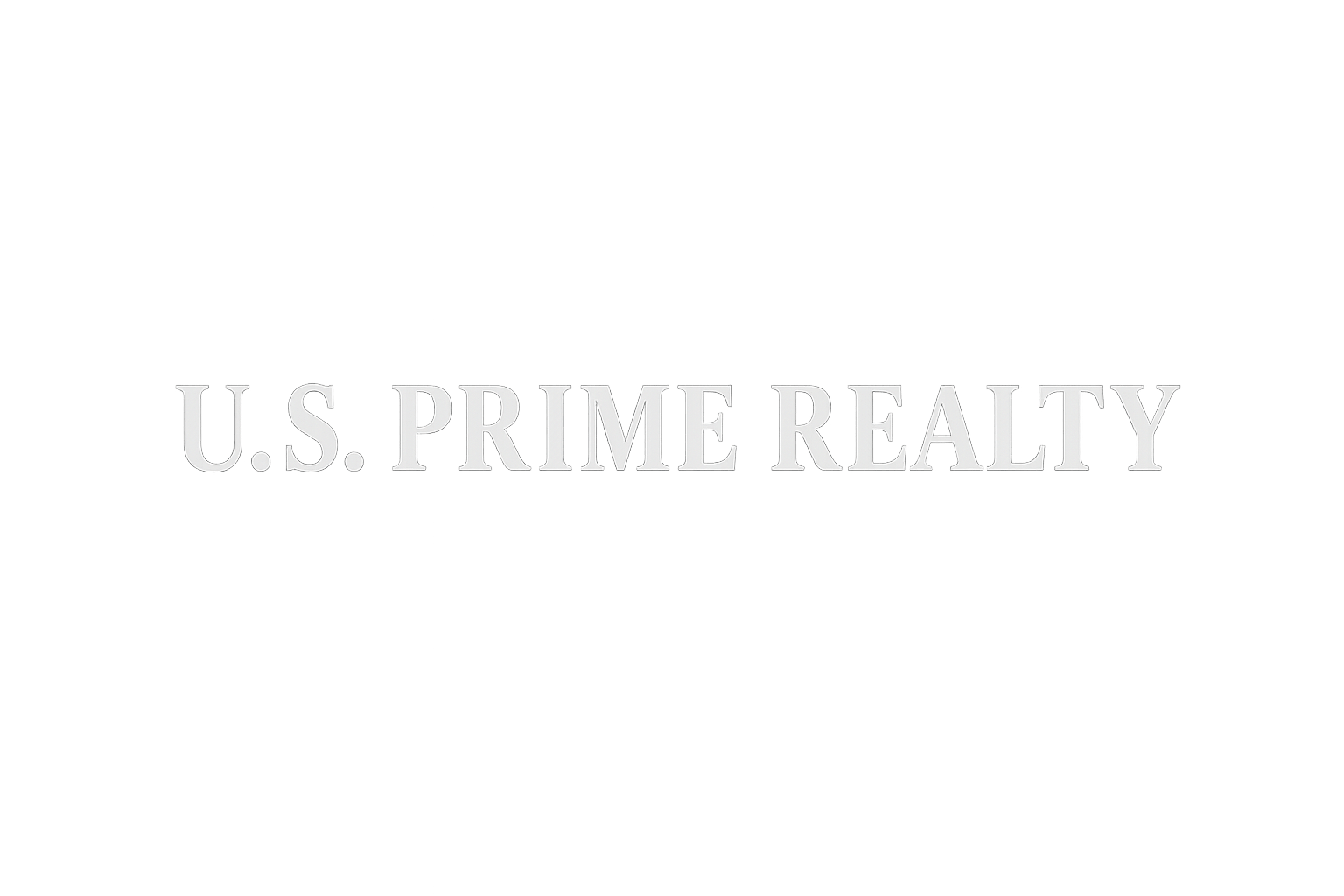Florida Real Estate Investors FAQ
Your comprehensive quick reference guide for making strategic investment decisions in Florida’s dynamic market.
Welcome to Your Florida Investment Resource
Whether you’re a first-time investor exploring Florida’s dynamic real estate market or an experienced portfolio builder seeking strategic expansion opportunities, this comprehensive FAQ addresses the essential questions that shape successful investment decisions.
What You'll Find Here
Who This Guide Serves
At US Prime Realty, we do more than show you homes. We:
- First-time real estate investors seeking foundational knowledge about Florida market entry
- Experienced investors evaluating Florida for portfolio expansion or diversification
- International investors navigating U.S. real estate acquisition, taxation, and management
- Remote investors managing properties from other states or countries
- Strategic investors comparing Florida markets and optimizing investment approaches
Our Approach
Florida’s real estate landscape spans seven major metropolitan areas, each offering distinct risk-return profiles across multiple price points and property types. This guide cuts through complexity to deliver the strategic intelligence necessary for informed decision-making. We combine institutional-quality market analysis with practical guidance refined through hundreds of successful client acquisitions.
Beyond This FAQ
While this quick reference provides essential overview information, individual circumstances often require personalized analysis. We encourage you to contact us directly for comprehensive market analysis, property-specific evaluation, and strategic guidance tailored to your investment objectives and capital position.
FAQ's
Getting Started
Market Selection
Financing & Costs
International Investors
Risk Management
Legal & Tax
Working With Us
Property Management
Market Timing
Compare Florida markets, property types, and identify optimal investment locations.
Documentation, taxation, entity structures, and remote management strategies.
Getting Started
Florida presents compelling investment opportunities backed by strong fundamentals:
• $1.5 trillion GDP with 3.5% growth (double national rate)
• 467,347 new residents in 2024, 25.7M projected by 2034
• No state income tax
• 25-35% inventory increase creating strategic entry points
• Diverse markets from $350K (Cape Coral) to $640K+ (Miami)
Capital requirements vary by market tier:
• Entry-level markets (Cape Coral): $80K-$100K total
• Mid-tier markets (Orlando/Tampa): $100K-$130K
• Premium markets (Miami/Fort Lauderdale): $150K-$200K+
• Requirements include: 20-25% down payment + 2-4% closing costs + reserves + improvements
Returns vary significantly by market and strategy:
• Rental yields: 5-12% depending on market/strategy
• Cape Coral vacation rentals: Up to 12.77%
• Miami/Tampa established markets: 5-8%
• Historical total returns: 8-15% annually (income + appreciation)
Yes. Remote investing is common for out-of-state and international investors through:
➡️ Professional property management
➡️ Virtual tours and digital transactions
➡️ Remote closing capabilities
➡️ Vetted local professional networks
• Standard timeline: 60-90 days
• Cash purchases: 30-45 days
• Complex transactions: 90-180 days
• Growth: Orlando (2.7% population growth), Fort Myers (16.7% since 2020)
• Income: Miami ($3,150 rents), Tampa, Fort Lauderdale ($2,500+ rents)
• Value: Fort Myers, Cape Coral (7+ months supply), Naples (87% below asking)
• Condos: Lower maintenance, HOA fees impact cash flow ($500-$1,500/mo)
• Commercial/Multifamily: Better cash flow, requires more capital/expertise
• Long-term rental: Stable income, lower management, fewer regulations
• Recommendation: Long-term for most investors; vacation for tourism markets with local expertise
➡️ Monthly rent should be 0.7-1.0% of purchase price
➡️ Consider market trajectory and replacement costs
➡️ Naples: 87% sell below asking (negotiation opportunities)
Market Selection
Financing & Costs
• Portfolio loans: More flexible, higher rates, 5-10 year terms
• Commercial: 25-35% down for 5+ units
• Foreign national programs: 30-40% down for international investors
• Foreign national loan programs (30-40% down, 680+ credit)
• Bank statement programs
• International banks (HSBC, UBS, Deutsche Bank)
• Cash purchase then refinance strategy
• Loan origination: 0.5-1.5%
• Appraisal: $400-$800
• Title insurance: 0.5-0.7% (seller typically pays)
• Insurance first year: $2,000-$5,000+
• Additional costs: inspection, survey, attorney, recording fees
• Investment properties: 25-50% higher than primary residences
• Coastal properties: Substantially higher
• No state income tax on rental income/capital gains
Federal:
• Depreciation (27.5 years)
• Mortgage interest deduction
• 1031 exchanges
• Operating expense deductions
• Section 199A: Potential 20% QBI deduction
• Valid passport
• ITIN (Individual Taxpayer Identification Number)
• Proof of funds and address
For financing:
• Bank statements
• Income proof
• Credit reports
• Foreign bank reference (30-40% down)
• Capital gains: 15% FIRPTA withholding, actual tax 0-20% with refund for overage
• Estate tax: $60,000 exemption (consider foreign corporation structure)
• Personal name: Simplest but unlimited liability, estate tax exposure
• Foreign corporation: Eliminates estate tax but complex compliance, entity-level taxation
• Technology: owner portals, smart home systems, digital payments
• U.S. banking relationships
• Occasional market visits recommended
International Investors
Risk Management
• Insurance costs/availability: 79% of U.S. insurance lawsuits
• Market cyclicality: Florida historically more volatile
•Insurance averaging: $10,000/year statewide
• Supply concerns: Miami luxury condos: 33 months supply
• Only 13-20% maintain flood insurance despite widespread risk
• Costs: $400-$8,000/year depending on zone
• Impact windows/shutters essential
• Inland properties lower risk
• Insurance windstorm deductibles: 2-10% of insured value
• Maintain 6-12 months reserves
• Stronger growth than most states
• 2008 saw 40-60% declines but stronger recovery
• Fundamental demand drivers remain robust
• No state income tax on rental income/capital gains
Federal:
• Depreciation (27.5 years)
• Mortgage interest deduction
• 1031 exchanges
• Operating expense deductions
• Section 199A: Potential 20% QBI deduction
• Liability protection limiting exposure to property value
• Florida formation: $125 + $100-$300 annual registered agent
• Asset isolation for multiple properties
• May increase financing costs slightly (0.25-0.5%)
• Annual tax returns (Schedule E)
• 1099 reporting
Florida:
• LLC annual report (May 1, $138.75)
• Sales tax for short-term rentals
No state income tax return
Local:
• Business tax receipts
• Rental registration
• Inspections
• Must identify replacement within 45 days
• Must close replacement within 180 days
• Must be equal/greater value for full deferral
• Use qualified intermediary (cannot touch proceeds)
Legal & Tax
Working With Us
• Property identification and analysis
• Acquisition coordination and negotiation
• Entity formation and financing facilitation
• International investor specialized services
• Property management infrastructure
• Portfolio management and ongoing support
• No separate fees for advisory services when acquiring
• Property management through vetted partners (8-12% of rent)
➡️ Weeks 3-4: Active property search
➡️ Weeks 5-6: Offer and negotiation
➡️ Weeks 7-9: Due diligence and financing
➡️ Weeks 10-12: Closing
• Out-of-state/international investors (essential)
• 3+ properties or no experience
• Cost: 8-12% of rent + leasing fees (50-100% first month)
• Mortgage (20% down, 7%): $2,128
• Property management (10%): $300
• Insurance: $900
• Property taxes: $275
• Maintenance/CapEx reserve: $750
• Vacancy reserve: $120
Total: ~$4,473/month ($3,150 rent = negative cash flow initially)
• Establish spending authority thresholds ($500-$1,000)
• Monthly reports and quarterly reviews
• Annual property inspections
• Avoid direct tenant contact
Property Management
Market Timing
• Inventory up 25-35% (more selection, less competition)
• Prices moderating (2-7% vs 20-30% pandemic years)
• Seller motivation (87% below asking in Naples)
• Strong fundamentals (467K new residents, 3.5% GDP growth)
Current concerns:
• Insurance costs ($10K+/year average)
• Supply in some segments (Miami luxury: 33 months)
• Interest rates (~7% investment properties)
Bottom line: Better entry conditions than 2021-2023, long-term fundamentals remain strong.
• Emphasized importance of post-2002 construction
• Insurance market further stressed
• Market-specific impacts (Fort Myers/Naples vs Orlando/Miami unaffected)
• Creates opportunities through seller motivation
• Reinforces due diligence on location, construction, elevation
Key Takeaways
Best Markets by Strategy:
• Income: Miami, Tampa, Fort Lauderdale
• Value: Fort Myers, Cape Coral, Naples
Essential Requirements:
• Professional property management for remote investors
• 6-12 months expense reserves
• Comprehensive insurance ($10K+/year)
Critical Success Factors:
• Conservative underwriting
• Market diversification
• Quality property management
• Proper entity structure (LLC)
Red Flags to Avoid:
• High flood risk zones without insurance
• Excessive HOA fees (>$500/mo)
• Markets with >12 months supply
• Properties with negative cash flow exceeding appreciation potential

